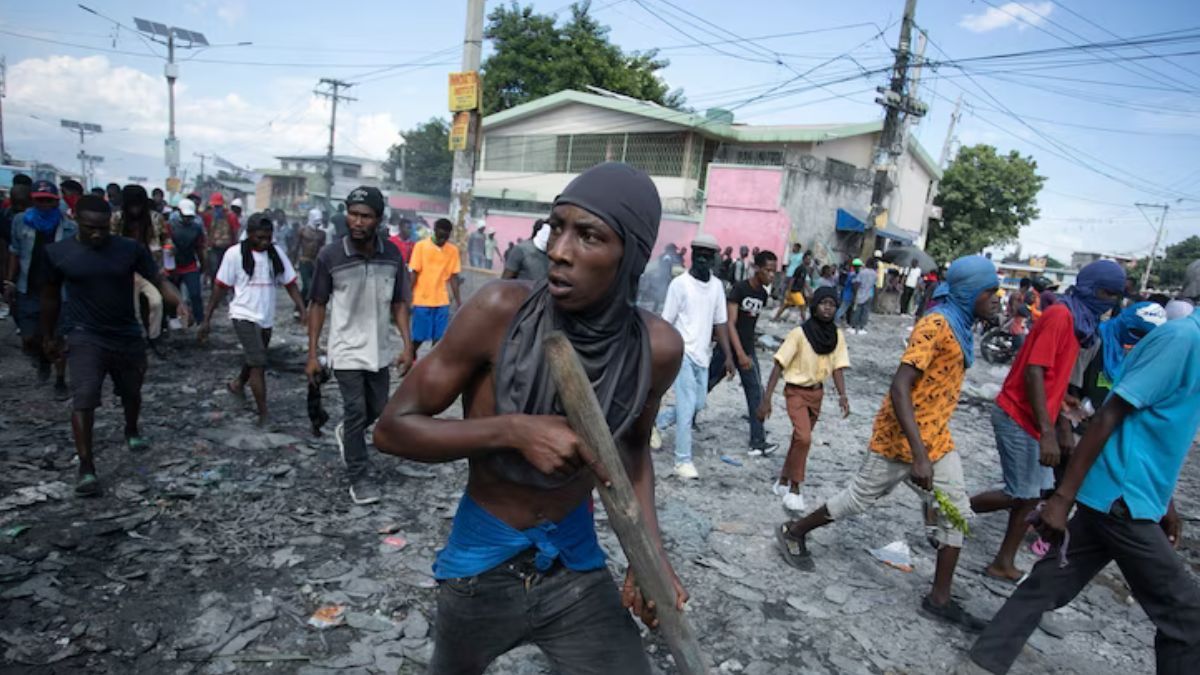The UN declared on Thursday that the situation in the gang-ravaged nation of Haiti is “cataclysmic,” with over 1,500 people having died as a result of gang violence so far this year and additional firearms flooding the nation.
The United Nations office for human rights said in a recent study how rising gang violence combined with corruption, impunity, and bad governance “had eroded the rule of law and brought state institutions… close to collapse.”
It stated that Haiti was now in “a cataclysmic situation” as a result.
Deprived Long plagued by violence, Haiti has seen a spike in conflicts since gangs staged a concerted attack in late February and demanded the resignation of Prime Minister Ariel Henry.
Since president Jovenel Moise was assassinated in 2021, Henry has been in charge of Haiti. He made a commitment more than two weeks ago to resign once a transitional council was established, but getting there has been extremely challenging because of disputes amongst party leaders.
Meanwhile, the number of casualties is rapidly rising.
Additionally, it stated that, as of March 22, only the first three months of 2024 had seen 1,554 fatalities and 826 injuries.
The investigation detailed widespread instances of sexual violence, including as when women were coerced into having sex with gang members for financial gain, when hostages were raped, and when women witnessed their husbands being slain in front of them.
Impact Shorts
More ShortsIt also brought attention to the kidnapping and mistreatment of kids, both boys and girls, who are unable to quit gangs out of fear of reprisals.
“All these practices are outrageous and must stop at once,” UN rights chief Volker Turk said in a statement.
The report also mentioned the “self-defence brigades” that were established in response to the rising gang violence and issued a warning that they would not stop enforcing justice on their own.
“Individuals accused of petty crime or suspected of association with gangs continued to be lynched, stoned, mutilated, or burned alive” by these brigades, it stated.
According to the research, there were at least 528 examples of lynchings recorded last year, including 18 women, and 59 more have been documented thus far this year.
According to the research, there was a consistent flow of firearms and ammunition across Haiti’s “porous borders” even after an international arms embargo was imposed in an attempt to stop the carnage.
To stop the flow of guns and ammunition into the war-torn nation, it demanded stricter international and national regulations.
The assessment released on Thursday also reaffirmed the urgent necessity for the Multinational Security Support mission to be sent in to assist Haiti’s police in putting an end to the violence and safeguarding the populace.
With the transitional council in place, Kenya, which had committed to lead a long-awaited, UN-approved mission to support Haiti’s security forces in their fight against well-armed gangs, has postponed its preparations.
Turk emphasized that “effectively integrating human rights into the conduct of its operations and establishing a compliance mechanism to mitigate and minimise harm” will be “essential” if the mission is created.
The rights office study also emphasized the necessity for policies targeted at restoring the rule of law, emphasizing that increasing security by itself would not provide long-term answers to Haiti’s problems.


)

)
)
)
)
)
)
)
)



